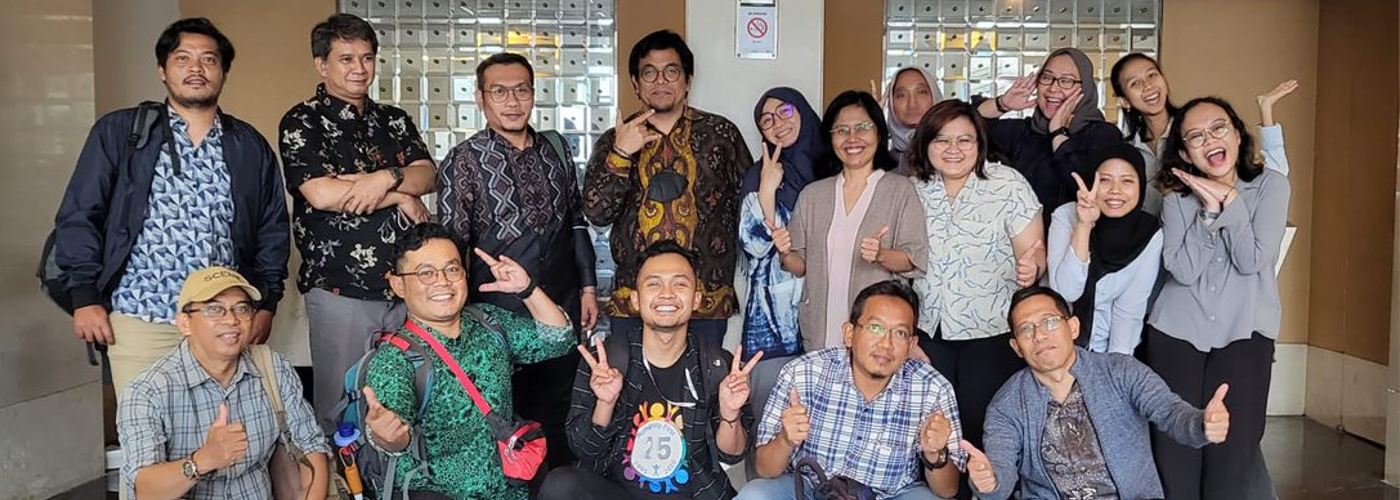Fisherfolk Empowerment for Climate Resilience and Sustainability in Central Java (FOCUS)
FOCUS aims to bolster coastal management to better deal with climate change and disaster risks and create a sustainable food system for the fishing community in Central Java. It also wants to increase the participation of coastal populations in decision-making on resource planning. The program advocates for a more sustainable balance between use and conservation of marine resources, including mangroves, and helps improve local value-chains.
Why are Indonesia’s coastal areas so important to protect?
Due to the length of Indonesia’s coastline and its many islands, Indonesia is highly vulnerable to climate crisis impacts, particularly sea-level rise. And the country has the world’s 5th highest population inhabiting low coastal zones. Its coastal areas are facing severe overfishing, unsustainable seaweed production, pollution, and coral reef damage. This in turn impacts the income and nutrition of fisherfolk and those engaged in coastal recreation and eco-tourism.
Indonesia’s coastal areas are also home to 23% of the world’s mangroves which can store 3.1 billion tons of carbon. However, every year Indonesia sees major mangrove loss caused by palm oil plantations and urban expansion. And by local people who cut mangrove trees to produce charcoal and animal feed, or to make space for aquaculture ponds.
How are we FOCUSing on these problems?
FOCUS works with local governments, community groups and other relevant stakeholders to raise awareness on issues like coastal management, the resilience of coastal communities to climate change, and nutrition and stunting. Advocacy, awareness raising and capacity development are done in cooperation with local authorities and other stakeholders to implement activities aimed at achieving four outcomes:
- An inter-sectoral coordination platform producing policy recommendations, draft policies, and other documents on integrated coastal management for a sustainable food system
- Local stakeholders using adaptive, sustainable fishery and coastal management to mitigate the impacts of natural disasters and climate change
- Sustainable and inclusive sources of income for coastal communities, particularly among women and youth
- Increased public understanding of and engagement with sustainable management of marine and coastal assets like fisheries, mangroves, and coral reefs.
Planned Activities
Hivos and partners will put in place mechanisms to achieve even gender balance in all FOCUS activities:
-
Lobby and advocacy: with key stakeholders including local and national government, local fishing communities, CBOs and CSOs
-
Capacity building: knowledge and skills transfers through training and workshops on integrated coastal management, disaster risk reduction and management, economy, and nutrition
-
Collective campaigns: to ensure the message of FOCUS reaches and is understood by direct and indirect stakeholders; to amplify the voices of fisherfolk impacted by climate change and urban development; to showcase best practices of existing local coastal climate solutions
-
Monitoring and Evaluation: to ensure the project is implemented along the indicators set on the baseline, overcome challenges as they occur, and mitigate risks
-
Institutional approach: development of an institutional platform to harmonize stakeholders and provide a sustainable exit strategy
Where
One city (Semarang) and four districts (Jepara, Demak, Batang and Kendal) in Central Java Province in Indonesia. Central Java Province is the third-most populous province in Indonesia.
Period
December 2022 – December 2026
Partners
Hivos leads the consortium and aims to ensure a safe working environment during the course of the program. Our partners are:
- KIARA: well-known for providing valuable assistance to communities and campaigning to raise their awareness of conservation and environmental protection.
- WALHI: a national NGO involved in environmental conservation for over 30 years with ample experience in community-based ecosystem conservation and campaigns, disaster risk reduction, capacity building, advocacy, and getting better credit and market access for communities.
- PKSPL-IPB: Indonesia’s prime research institution in the field of coastal and ocean development, offering research and training programs in sustainable management of coastal and marine resources.
Donor
The Norwegian Agency for Development Cooperation (NORAD) within Norway’s Ministry of Foreign Affairs in Oslo. Together with its partners and on behalf of Norway, NORAD strives for a greener future in a world without poverty where human rights are respected and no one is left out. By way of knowledge and cooperation, NORAD is tasked with ensuring that Norwegian development aid contributes to global development.




